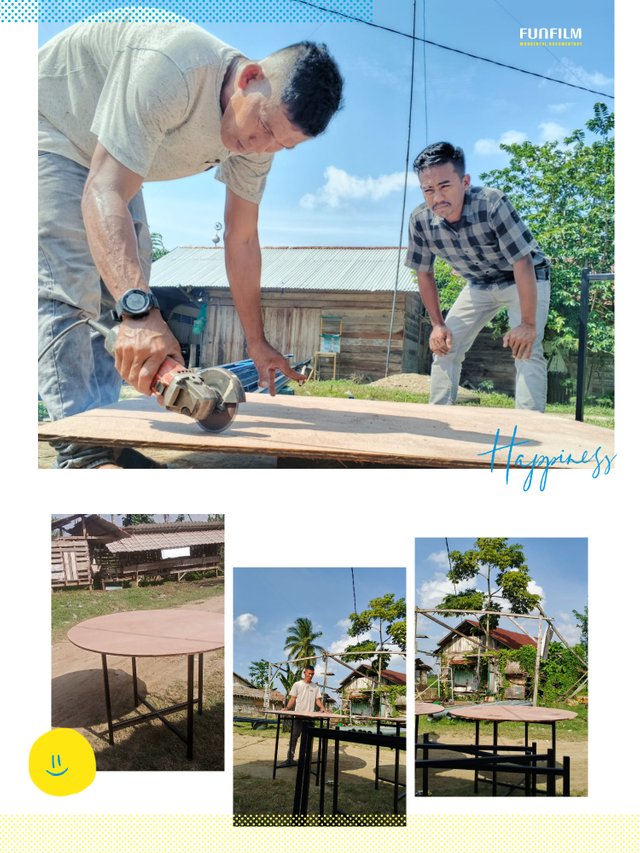SLC22-W6/ LABOR LAW
Today I have the opportunity to participate in the contest organized by @anasuleidy again. I am very happy to be able to participate in this contest and I hope I am also lucky.
Before I continue with the questions in this contest, I first invite some friends such as @marito74 @ulfatulrahmah @wuland @fajrulakmal99
Part I
Based on what you saw in class, say if in your country Working, besides being a right, is considered an "Obligation" and if there are legal sanctions for those who do not comply with this obligation.
Tell me what laws in your country are responsible for protecting labor rights or workers' rights and what you think about these laws.
In Indonesia, working is both a right and an obligation for every capable citizen, as regulated in the 1945 Constitution of the Republic of Indonesia, Article 27 paragraph 2. If someone does not work without a valid reason, they may be subject to legal sanctions, especially related to tax and administrative obligations.
Laws that protect workers' rights in Indonesia include Law Number 13 of 2003 concerning Manpower and Law Number 11 of 2020 concerning Job Creation. In my opinion, although these laws provide protection for workers, their implementation and supervision still need to be improved to ensure workers' rights are more effective and fair in the field.
Part II
-. Based on what you have seen in class, state which institutions are responsible for or competent to enforce labor rights.
-. State whether you have had an experience in the workplace in which a claim or violation of any labor right or employment right is applicable.
In Indonesia, the institution responsible for enforcing labor rights is the Ministry of Manpower, which has a role in supervising and enforcing labor laws. In addition, the industrial relations court is also authorized to resolve disputes related to labor rights. During my work, I have witnessed violations of labor rights, such as late payment of wages and non-fulfillment of leave rights. This causes dissatisfaction among employees and often leads to conflict with the company. However, by involving related institutions, these problems can be resolved in accordance with existing regulations.
Part III
Practical Case 1.
A company needs two drivers, but the company's economic situation has been deteriorating and they need to reduce operating costs, including the payment of their workers.
So they decide to hire two people who will work as truck "drivers" but the contract establishes that they are "cleaning staff" in order to justify the low salary they will receive.
It is also established, agreed upon and accepted by the workers in the contract that once the employment relationship is over, they will not receive or claim money for social benefits or severance pay.
Both the employer and the 2 workers sign the contracts accepting the conditions described above.
1.- According to what was seen in class, and if you were a lawyer who had to attend to these workers, what principles of those explained in class would you apply to the present case?
Practical Case 2.
A worker has been working for a company for 15 years, but the relationship with his boss has been getting worse due to personal issues between them.
One day, the boss decides to fire him, claiming that it is his company and that he accepts whoever he wants. Without further ado, the worker decides to seek advice.
1.- According to what you saw in class and according to the laws of your country, say which institution this worker should go to and what actions he should take to restore his rights.
2.- Say why you consider that this institution or entity is competent to deal with this matter.
*** practical case 1 ***
In this case, the main principle that must be applied is... The principle of fairness and protection of workers' rights. Although the contract states that the workers are, cleaning staff, they actually work as truck drivers. This shows the potential for abuse of the employment contract to attend to social obligations such as benefits or severance pay. As a lawyer, I will refer to the principle. An invalid contract. If it is abused to exploit workers. In this case, the applicable labor law should protect the rights of workers, especially regarding the actual employment status and the employer's obligations in terms of social rights and severance pay.
*** practical case 2 ***
Workers who are unilaterally dismissed after 15 years of work must report to the labor office or industrial relations court, to restore their rights. The right action is to file a lawsuit against the dismissal that is considered illegal, based on the provisions of worker protection in the labor law which prohibit unilateral dismissal without a valid reason. This institution is competent because it has the authority to handle labor disputes, including dismissals that are not in accordance with procedures and provide fair solutions based on applicable laws.
Greetings @aril.hatake

Hello sir @aril.hatake , We are both Indonesian citizens, there is something interesting about the work experience you convey...
It is true, this problem is the beginning of conflict between labor and companies, even though the Industrial Relations Court is an institution that has the authority to help restore this condition. But we often see that many labor cases are not resolved, such as late payment of wages and leave rights. There are even cases of workers' salaries being cut that cannot be recovered...
Hopefully this will continue to improve with good intentions from the company and government.
Siap bg ridwant